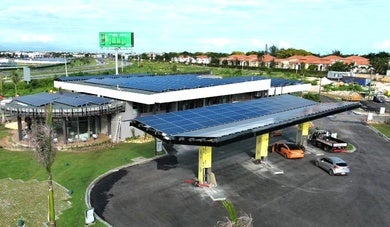Why Our Region Needs More Gender Bonds

It’s begun. Some international gender bonds have been issued, yet they are still few. Latin America is not yet late to join this nascent gender bond market. The timing is just right.
Gender bonds are more than a fixed-income financial product. They are subject to the same financial and capital market regulation as traditional bonds, but their aim is to bridge existing gaps in terms of female access to the labor market, leadership positions, and financing. The highlight of this financial instrument is that it can finance companies that meet any of its three objectives: that the company is directed by women, that it offers products or services for women, or that it is committed to promoting equality.
These bonds follow the principles for social bonds agreed by the International Capital Markets Association (ICMA). They also contribute to the UN's Sustainable Development Goals (SDGs), and are verified by well-known external and independent organizations within the market who provide second party opinions.
These bonds are one of the many gender lens investing products that also empower women economically and socially without sacrificing profitability. Only a few gender bonds have been issued to date, mainly in Australia and Canada, and they have been quite successful. Now, Latin America comes into play for the first time. More specifically, Panama.
Banistmo is a subsidiary of BanColombia and Panama's second largest financial institution. It is issuing $50 million in five-year gender bonds. IDB Invest is the IDB Group's private sector bank and it has structured the transaction, in addition to acquiring 100 percent of the bond. The purpose of the funds raised through this issue is to finance SMEs led by women, specifically those with an annual turnover between $12,000 and $10 million.
Banistmo will achieve this objective by relying on the gender equality promotion strategy it has been developing for several years, both within the organization and through its business. Specifically, it began to design its gender strategy in 2016 and launched the Impulsa program in 2018, with the aim of providing female entrepreneurs and businesswomen in Panama with access to financial and non-financial services. The Impulsa program was supported by IDB Lab, the IDB Group's innovation laboratory, and combines access to financial products, training, and collaborative alliances with professional networks for women and other associations that promote gender equality. To date, Impulsa has conducted training workshops for more than 1,000 women, including the participation of 100 employees who have been made aware of gender equality issues, and of whom half have engaged as mentors.
This target segment currently represents almost 50 percent of Banistmo's SME customers, with a portfolio of $300 million. The resources raised through this bond are expected to produce an annual growth of 6 percent. Banistmo holds the Panamanian gender equality seal and has adopted the Women's Empowerment Principles set forth by the UN. It has joined the Financial Alliance for Women, a consortium of over 50 financial institutions from around the world with specific programs and products that support women.
This bond has a second party opinion from Vigeo Eiris, and could contribute to four United Nations Sustainable Development Goals, making it the first bond of its kind in Latin America. There have only been four similar bonds issued by private sector entities before this one. The first two were issued in Australia, by the National Australia Bank (NAB) and the insurance company QBE, followed by the Canadian Imperial Bank of Commerce and the Turkish Garanti Bank.
It is important keep the momentum. We must encourage other entities to invest with a gender focus, because society requires it, investors want it, and our economy and our development need it. No country can afford to underutilize an asset as valuable as women, who account for 50 percent of the world's population and yet contribute only 37 percent of GDP, according to McKinsey data. The glass ceiling needs to be shattered, so that nothing can stop the value that men and women can build together in equilibrium.■
* This opinion column was originally published on Friday, August 9, 2019 in the Panamanian newspaper La Prensa. Reproduced with their permission.
LIKE WHAT YOU JUST READ?
Subscribe to our mailing list to stay informed on the latest IDB Invest news, blog posts, upcoming events, and to learn more about specific areas of interest.
Subscribe


